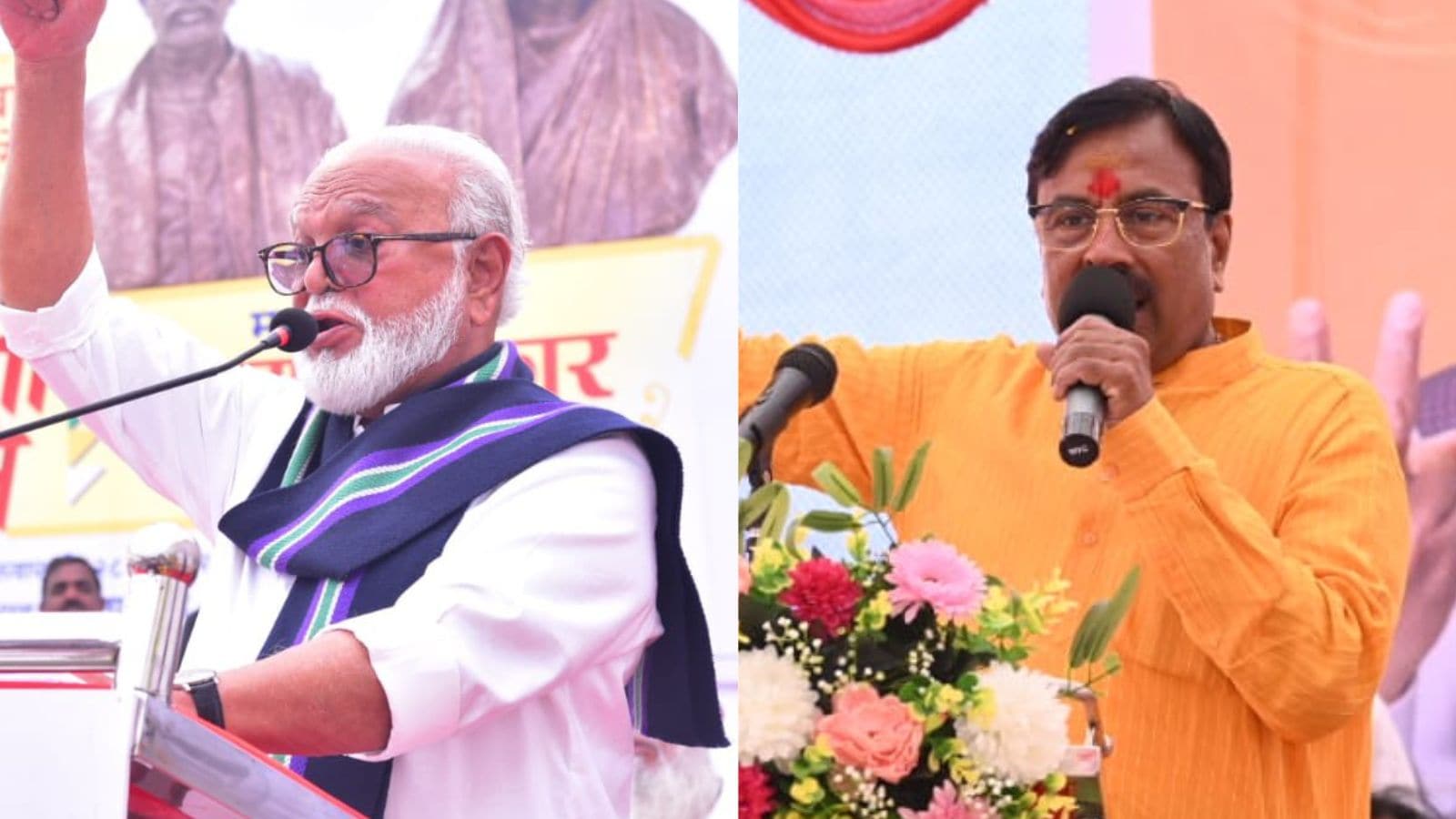 |
|
The recent expansion of the Maharashtra Cabinet has ignited a wave of discontent among several prominent political figures, revealing deep-seated tensions within the ruling coalition. The most prominent case is that of Chhagan Bhujbal, a senior leader from the Nationalist Congress Party (NCP), who openly expressed his disappointment at being excluded from the new cabinet. Bhujbal's public expression of anger, highlighted by his immediate departure from Nagpur to his hometown of Nasik on the first day of the Winter Session, underscores the severity of the situation. He directly linked the snub to his vocal opposition to Maratha social activist Manoj Jarange-Patil's push for granting OBC status to all Marathas, a move Bhujbal, a prominent OBC leader himself, vehemently opposed. This public disagreement created a significant rift within the NCP and the broader political landscape of Maharashtra. Bhujbal's statement regarding a previous offer for a Rajya Sabha seat, which he declined due to his commitment to his constituency, further complicates the narrative and suggests a possible breakdown in communication and trust between him and the NCP leadership. The NCP’s subsequent response, through minister Hasan Mushrif's assurance of dialogue, remains to be seen in its effectiveness in resolving this brewing conflict. The absence of Deputy Chief Minister Ajit Pawar, who departed for Delhi amidst this unfolding drama, further emphasizes the political maneuvering and uncertainty surrounding the situation.
The discontent extends beyond the NCP. Within the Eknath Shinde-led Shiv Sena, similar expressions of dissatisfaction are emerging. Narendra Bhondekar's resignation from party posts following his exclusion from the cabinet reflects a growing sentiment of disillusionment within the party ranks. This is further amplified by Vijay Shivtare's vocal critique of the cabinet formation process, accusing the ruling coalition of prioritizing caste equations over regional balance and alleging a sense of betrayal by three key leaders within the Mahayuti. Shivtare’s strong words, including the comparison of Maharashtra’s political climate to Bihar's, highlight the deepening crisis of confidence and the potential for further fracturing within the Shiv Sena. The fact that he refuses a ministerial position at this juncture underscores the gravity of his grievances and the lack of trust in the current leadership.
The discontent also extends to the BJP, a key player in the Mahayuti government. Sudhir Mungantiwar, a senior BJP leader, notably absented himself from the first day of the Winter Session of the Maharashtra Assembly, fueling speculation about his dissatisfaction with his exclusion from the cabinet reshuffle. The absence of Independent MLA Ravi Rana, another hopeful for a ministerial position, further illustrates the widespread disappointment among those who anticipated a position in the new government. These multiple instances of discontent across various political parties suggest a deeper problem within the ruling coalition, calling into question its stability and ability to effectively govern. The lack of transparency and communication surrounding the cabinet appointments, coupled with the strong public reactions from affected leaders, points towards a potential crisis of leadership and political strategy within the ruling alliance.
The situation in Maharashtra highlights the complex dynamics of coalition politics. The internal strife within the ruling coalition threatens to undermine its stability and effectiveness. The public airing of grievances by prominent leaders raises concerns about the cohesiveness of the ruling alliance and its ability to effectively address the challenges facing the state. The upcoming days will be crucial in determining how the ruling coalition addresses these expressions of discontent, and whether it can successfully navigate these internal conflicts to maintain its grip on power. The potential for further defections or open rebellion cannot be ruled out, and the longer these issues remain unresolved, the greater the risk of political instability in the state. The outcome will likely shape the political landscape of Maharashtra for the foreseeable future, impacting governance, policy-making, and the overall political climate.
The situation also raises questions about the future of the ruling coalition. The discontent among senior leaders raises concerns about the coalition's long-term stability. The way the ruling coalition handles these expressions of discontent will be critical in determining the future of the alliance. Failure to adequately address the concerns of disgruntled leaders could lead to further defections and ultimately, the collapse of the coalition government. The events of the past few days serve as a stark reminder of the fragility of coalition governments and the importance of effective communication, transparency, and inclusive leadership.
